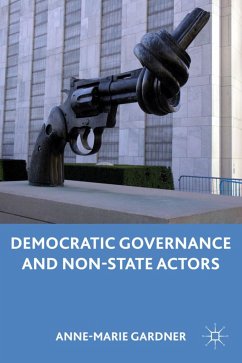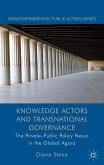This book investigates whether international standards of good governance are applied to sub-state actors as well as to states. By examining the international response to self-determination claims, this project demonstrates that the international community does indeed hold sub-state groups accountable to such standards.
Hinweis: Dieser Artikel kann nur an eine deutsche Lieferadresse ausgeliefert werden.
Hinweis: Dieser Artikel kann nur an eine deutsche Lieferadresse ausgeliefert werden.
"Anne-Marie Gardner highlights the oft neglected struggles of sub-state actors to achieve international legitimacy. While the United States remains the global hegamon, Gardner demonstrates why and how sub-sate claimants to recognition by the international community must prove their commitment to human rights, democratic governance, rule of law, and economic liberalization. But should the United States stumble, what values would replace America's as the goals that sub-state claimants to international recognition would be expected to emulate? In her skillful analyzes of the strategies pursued by sub-national claimants in Kosovo, Nagorno-Karabach, and Western Sahara, Gardner subjects her theory to rigorous empirical testing. For students of ethnic conflict and international relations, this book qualifies as must reading." - Milton J. Esman, Professor of Government, Emeritus, Cornell University
"In this lucid, carefully researched, well-written and clearly argued study, Anne-Marie Gardner has defined the democratic legitimacy conditions that need to be met for a non-state actor to gain the support of the international community. This is a must-read contribution to the literature on the role of international norms in world politics." - Michael W. Doyle, Columbia University
"In this lucid, carefully researched, well-written and clearly argued study, Anne-Marie Gardner has defined the democratic legitimacy conditions that need to be met for a non-state actor to gain the support of the international community. This is a must-read contribution to the literature on the role of international norms in world politics." - Michael W. Doyle, Columbia University








